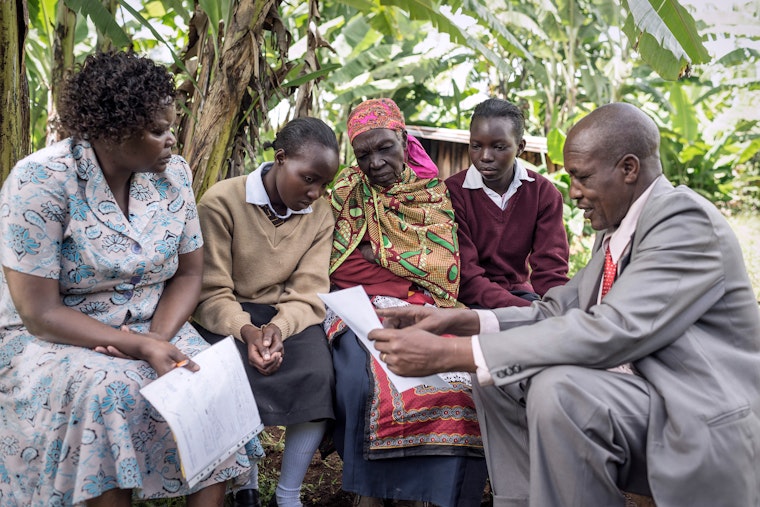
After more than two years of extensive negotiations and consultations, the members of the United Nations have agreed on a new framework for global development efforts—the 2030 Agenda for Sustainable Development.
The agreed text, Transforming Our World: The 2030 Agenda for Sustainable Development, represents the most comprehensive vision for the future of global development yet conceived. According to Ban Ki-moon, United Nations Secretary General, it represents “the people’s agenda, a plan of action for ending poverty in all its dimensions, irreversibly, everywhere, and leaving no one behind.”
Importantly, for the first time, this global vision includes setting targets for justice and governance, building on the more limited focus of the Millennium Development Goals (MDGs), a set of targets agreed in 2000 that provided the world with its first ever set of global development priorities.
Targets including “access to justice” and ensuring that everyone has access to legal identity, such as birth registration, by 2030 are included in Goal 16 of the 17 Sustainable Development Goals that form part of Agenda 30.
Goal 16 also includes targets addressing corruption, tackling violence, promoting accountability and transparency, and calling for access to justice and information and the promotion of the rule of law at all levels. Moreover, the importance of equal access to justice and participatory and inclusive approaches to development are recognized throughout the agreement in the framing preamble, and in the other goals, targets and review mechanisms.
What does justice have to do with overcoming poverty?
Imagine a vibrant, modern economy sustaining itself where there is no respect for the sanctity of a contract, where a deed of ownership is not worth the paper it is written on, or where all disputes are resolved in a trial of strength, rather than by weighing the justice of competing claims. The rule of law is a basic precondition for sustainable economic development.
In societies with some legal protections, those who lack the resources for or access to the legal system are often denied these safeguards. It’s estimated that four billion people around the world do not enjoy the protections afforded by law.
The poorest and most vulnerable instead live at risk of losing their homes or the land upon which they depend for survival. They are exploited by corrupt government officials or local power-brokers, who use money or force to take what they want. When poor communities cannot seek justice for their grievances, the resulting anger can spill over into violence.
If serious progress is ever going to be achieved in overcoming extreme poverty, the poor must enjoy the rule of law and functioning institutions of justice—otherwise money will continue to flow towards the powerful.
How are the Open Society Foundations promoting the role of justice and governance?
During the negotiations over the Sustainable Development Goals we at Open Society Foundations and our partners stressed the importance of including new targets on violence reduction, access to justice and the provision of legal identity, as well as the creation of more ways to enable citizens to take an active part in decisions that effect their well-being. We continue to work with our partners around the world—and with some governments who have already seen the benefits—to present clear, concrete examples of how grass-roots access to justice can support development.
Our partner Namati, which supports a global network of local legal empowerment groups, is also leading discussions on the kind of indicators that might be used, in effect, to “measure justice” and to establish the kind of comparable national targets used by the original MDGs. We could measure the number of people who have access to reliable, affordable legal information, should they need it. Or reduce to zero the number of individuals who lack a basic legal identity document which would give them access to government services.
In the meantime, we are continuing our work with partners on the ground. We are helping people use the law to gain access to education, health care, food and fresh water, housing, and other vital necessities. Some examples:
- In Sierra Leone, we support the development of a national network of community-based legal advisors.
- In Uganda, we support Uganet paralegals, who are based at medical centers to help people living with HIV deal with their legal problems.
- In Ukraine, we support local lawyers in rural areas to assist people negotiating the country’s bureaucracy.
- In South Africa, we support the Women’s Legal Centre, which provides legal services for sex workers in collaboration with sex worker organizations.